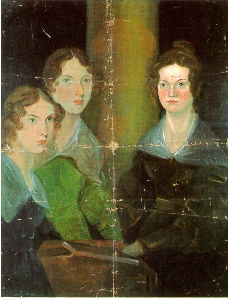In 1905, Henry James complained that a "beguiled infatuation" with the lives of the Brontë sisters made critical analysis of their work virtually impossible. The obsession with their biography, he wrote, "covers and supplants their matter, their spirit, their style, their talent". A century later, that still holds true. The Brontës' "matter" is still obscured. I have male friends who have never read those three great works, Jane Eyre, Villette, and Wuthering Heights. Even bookish women friends can be hesitant: they'll confess to a passion for the novels as adolescents, but they regard re-reading them as a form of regression. The Brontë myth is to blame. So my first plea would be: re-read the novels in the order they were written, yes, even The Professor. All seven inter-relate, cross-refer, react and respond to each other.
Next, biographies: there are countless numbers of them, some hagiography, some demented, and many plodding; I would restrict the list severely. The first, Gaskell's Life of Charlotte Brontë, is the book that launched a thousand myths.
